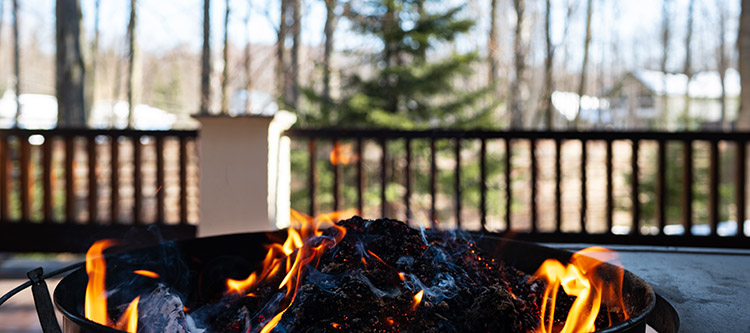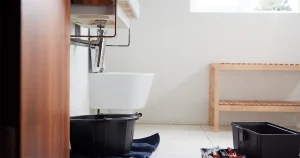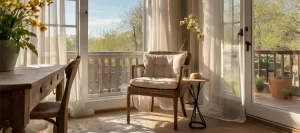In this article:
Who said that enjoying your patio year-round isn’t possible in Massachusetts’ seasonal climate? There are many ways to extend your patio’s usability well into fall and winter, so you can enjoy the beauty of every season New England has to offer. Are you contemplating a backyard renovation project and looking for some creative and practical patio design ideas? Consider adding some features to adapt your backyard to New England weather. Here are some cold weather patio ideas to add to your outdoor living space.
Creating a Winter-Proof Patio in Massachusetts
The key to a winter-friendly patio lies in choosing the right furniture and accessories. Opt for weather-resistant materials like teak or wrought iron for your furniture. These materials can withstand the elements and ensure your patio remains a functional space throughout the year. Invest in waterproof throws and cushions to add comfort and a touch of color. By selecting durable and weatherproof decor elements, you create a foundation for enjoying your patio even when it snows.
Patio Fire Features
Introducing a fire feature to your patio is a fantastic way to add warmth, ambiance, and a touch of magic to your fall and winter nights. Wood-burning fire pits and fireplaces offer a traditional and ambiance-rich way to heat your patio. Cozy evenings by the fire are sure to bring people closer together in any season.
Fire Pits and Outdoor Fireplaces: Choosing the Right Option
Fire pits offer a portable and social gathering space. Perfect for roasting marshmallows or sharing stories with friends, they provide a central source of warmth and light. However, their heat output may be more limited compared to fireplaces. Outdoor fireplaces are a more extensive and structured solution for providing warmth in cold weather. They often deliver a higher heat output, making them an excellent option for larger patios. Generally, the addition of a patio fireplace would require a larger budget compared to a fire pit. Consider your needs and patio size when making your choice.
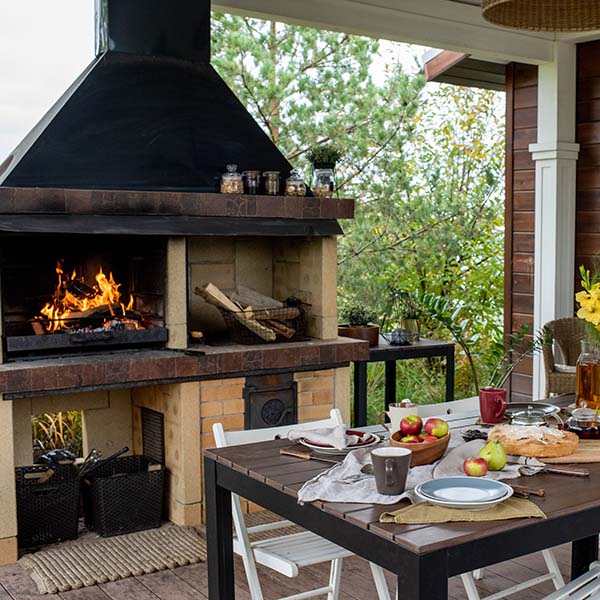
Propane Patio Heaters
Propane patio heaters offer a clean and efficient way to generate warmth on your patio. They are readily available, relatively easy to operate, and provide a good amount of warmth. Opt for models with adjustable heat settings and consider using a timer to control energy consumption.
Remember to prioritize safety when using propane heaters. Always follow the manufacturer’s instructions and ensure proper ventilation. Propane Council website is a great source for safety and best practices information on propane heaters.
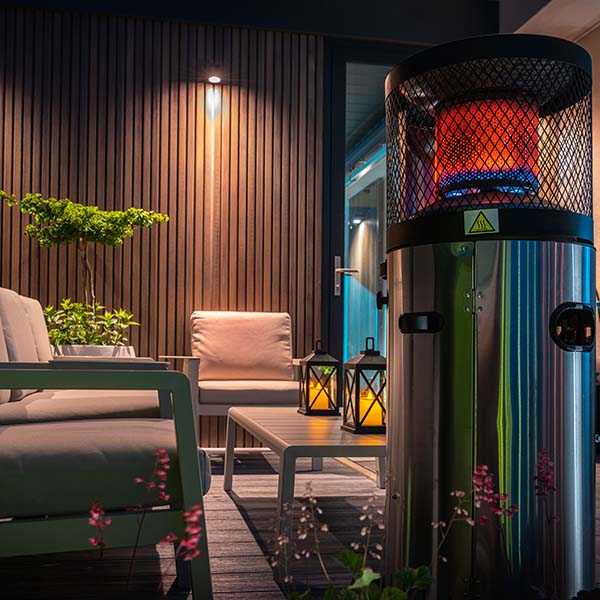
MA Open Burning Regulations
Massachusetts follows the International Fire Code (IFC), which outlines regulations for fire pits, outdoor fireplaces, and propane heaters. Generally, fire pits must be located a safe distance from buildings, fences, and property lines. Check with your local fire department for specific requirements in your area. Local regulations may specify permitted burning times, allowed materials, and fire pit size limitations. Your local fire department will have the most up-to-date information on open burning regulations in your area.
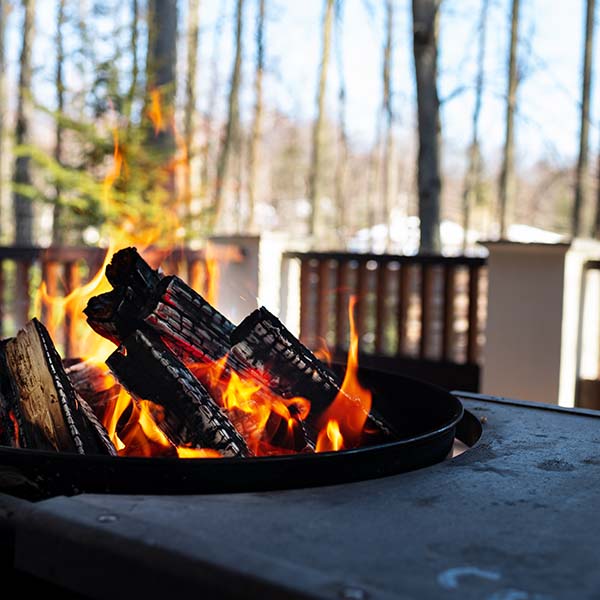
Electrical Patio Heating Options for Massachusetts Winters
While extending your patio’s usability is appealing, it’s important to consider energy efficiency, particularly during the colder months.
Radiant Heaters
Radiant heaters work by directing heat towards people and objects in their path, creating targeted zones of warmth. This can be a more energy-efficient option, especially in sheltered patio areas. There are many varieties of radiant heaters to choose from. Wall-mounted and overhead radiant heaters are often popular choices for cold-wealther patios in Massachusetts. Radiant heaters offering flexibility in placement and size of the heated area.
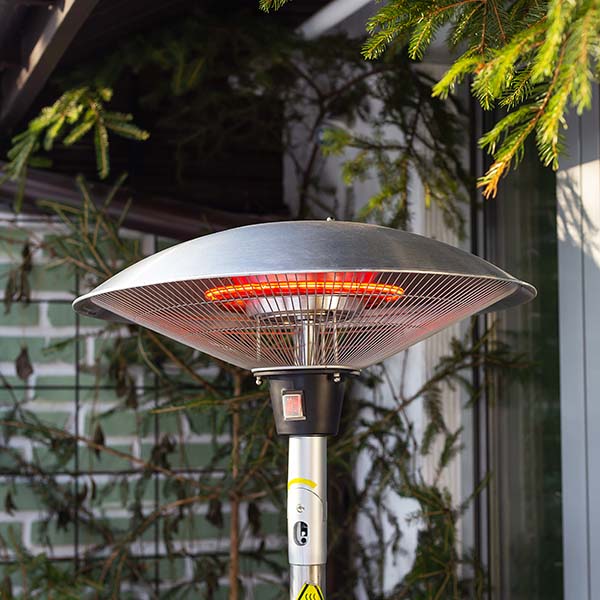
Radiant Heat Patio Floor
For the ultimate in luxurious winter patio enjoyment, consider installing a radiant heat patio floor. These systems embed heating elements beneath the patio surface, radiating warmth and keeping snow and ice off your patio. Be aware that you will need a licensed electrician to ensure proper installation of a radiant heat floor system. While the initial cost of a radiant heat patio floor is higher, the consistent targeted warmth and comfort it provides can be unparalleled.
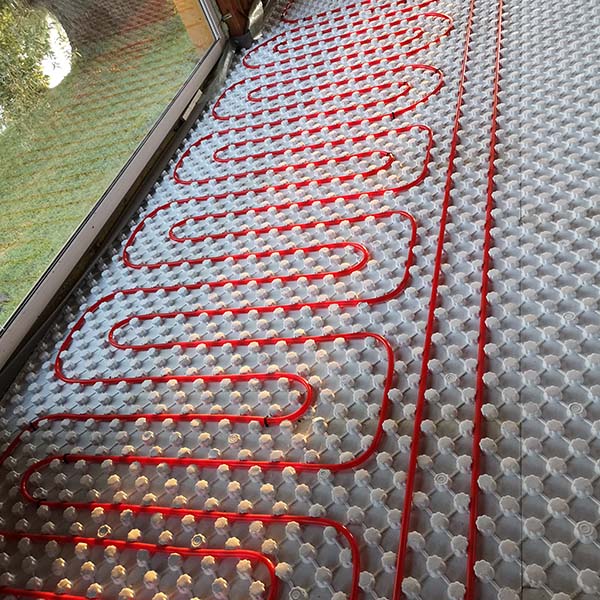
Massachusetts Regulations For Outdoor Electrical Heating Systems
While there aren’t specific regulations for the use and installation of heaters and heating systems on Massachusetts patios, these devices fall under the general state electrical and building codes.
Massachusetts Electrical Code (527 CMR 12.00) outlines general regulations for electrical installations. Radiant heat floors and heaters would need to comply with these safety guidelines during installation.
Massachusetts Building Code (780 CMR) governs building construction and renovation projects. Particularly, Chapter 14 – Heating and Cooling Equipment and Appliances – addresses heating systems, including electric radiant heating systems.
Patio Enclosures
If you’re looking to truly extend your patio usage deep into winter, look into installing a patio enclosure. These living space extension structures create a sheltered space around your patio, effectively transforming it into another room. For easier, budget-friendly options, consider retractable awnings or screened enclosure kits to provide protection from wind and light snowfall. There are various patio enclosure options available, each with its own advantages.
Patio Screen Enclosures
Patio Screen Enclosures offer ventilation and protection from insects during warmer months. They can be partially or fully enclosed with additional panels for winter use. Patio screens come in a great variety of options, many of which are very budget friendly. Screening a patio can be an excellent option for a DIY patio remodeling project. Look into ready-to-assemble kits available for sale.
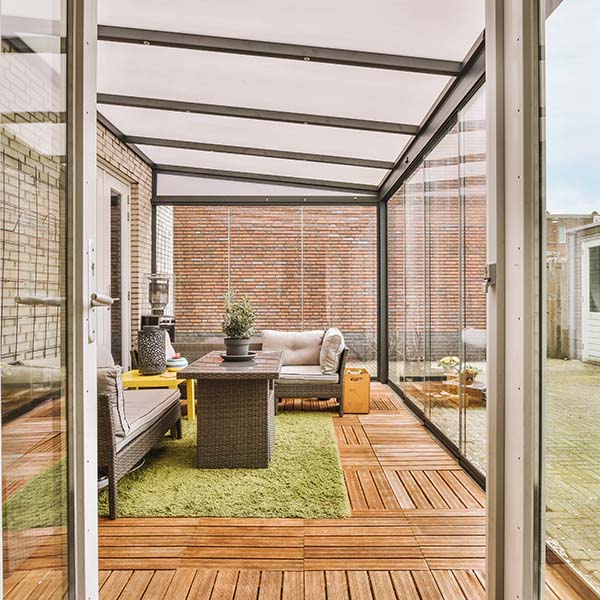
Sunrooms
A sunroom is a more permanent home addition and is often known as “garden conservatory” or a “sun parlor”. While constructed with insulated walls and a roof, sunrooms feature many large windows to let in the sunlight. Sunrooms provide maximum protection from the elements and can be comfortably heated for year-round use.
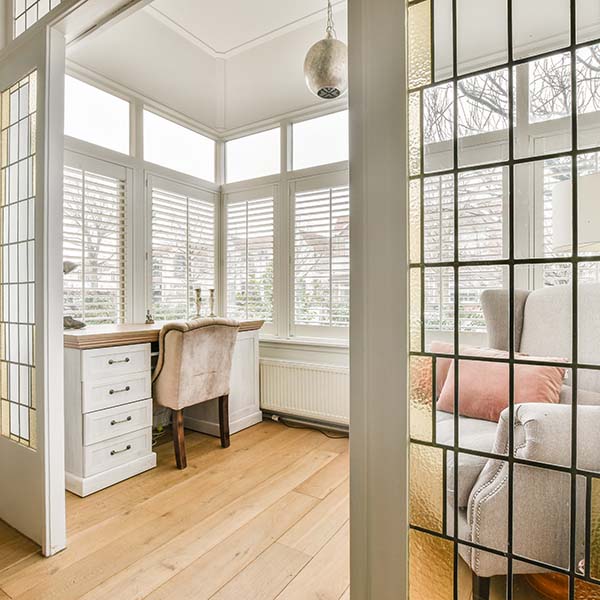
Solariums
Solariums are similar to sunrooms in that they are a permanent addition to the house. The difference is in the amount of glass used to let through the natural light. Solariums are typically constructed almost entirely of glass. Some advanced solarium structures may feature retractable screens to block out the excess sunlight on hot days.
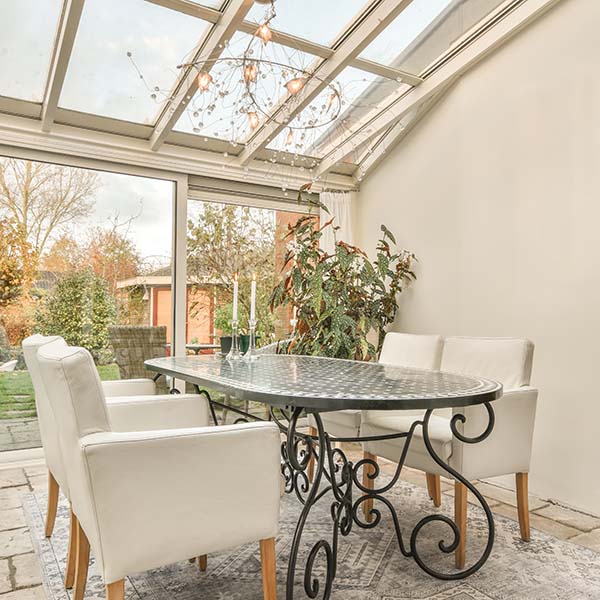
Conclusion
Massachusetts seasons are an inspiration for an abundance of cold weather patio ideas. Whether you are focusing on the sole patio construction or an entire backyard remodeling project, remember to look into the Massachusetts codes and regulations to ensure safety and durability of your outdoor living space. Happy building!

